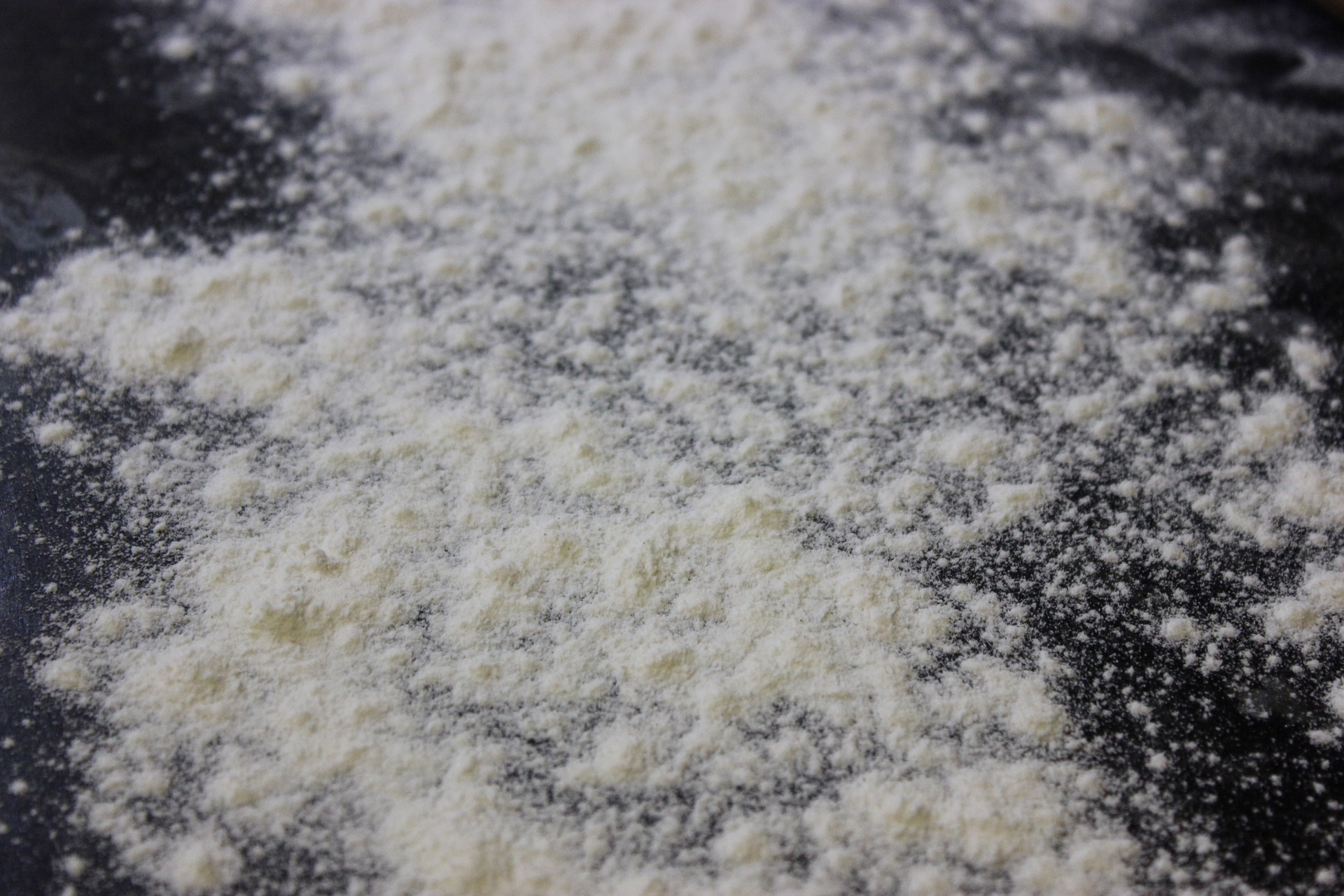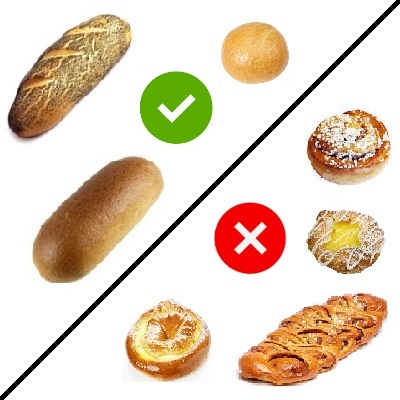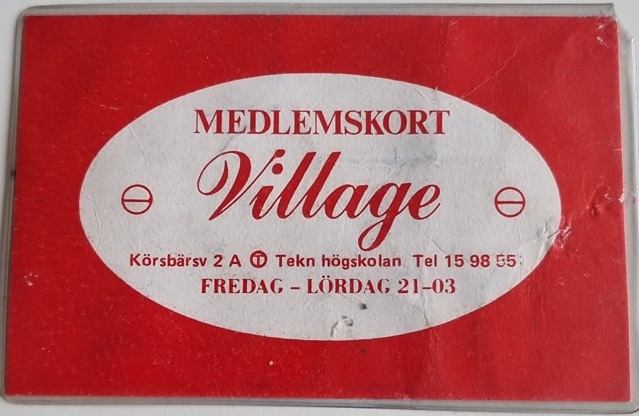 Our past informs our present and, by extension, our future. This is the story of the summer of dough: when I summer worked in a bakery, pretended to be a disco dancer and, for a moment, owned a boat. This is also a piece in the puzzle of how I became the Ambassador. It was the summer of 1979. I had just finished my first year of three in upper secondary school. I hadn't applied for this programme. In fact, I was heading for the two-year social study programme (scornfully but rightfully called ”social slum”, because of its total lack of future prospects). Unemployment and/or municipal adult education awaited each and every one. However, my distinguished elementary school teacher had some insights in the admission process. He informed me that the upper secondary school, in a late stage, had decided to expand its theoretical programme. He encouraged me to switch lane. A three-year programme opened up for higher studies. Obviously, he saw something that no one else saw. The student base in my municipality was too small to enable separate programmes. A special arrangement was required. Humanists, social scientists and economists were bundled together with a coordinated schedule. We shared class, but had different subject specialization (language, social studies or math). The teachers were respected. In elementary school we ate ordinary and substitute teachers for breakfast. The students were suddenly motivated. Not so strange, it was voluntary to attend upper secondary school. What happened between elementary and upper secondary school? Clearly, a sorting had taken place. One important divider was socio-economic and cultural capital. Almost all of my classmates had parents with white-collar (however simple) jobs and bookshelves in their homes. All of us, except one, still lived with our parents. That was the implicit contract: your parents supported you. Not every parent was supportive. One parent, who was also a baker, told his son: ”I was 14 when I got my first job and moved out". Clearly, a Charles Dickens vibe in the late 1970s. I'm not sure what happened, but I think the guy got an apprenticeship as a welder. The academic potential in this case was perhaps limited, but we should all be given the same opportunities to social mobility. The social stratification was done with surgical precision and cut merciless through childhood friends and existing social circles. Our school was competitive, in mint condition and academically staffed. Forty years later the school is struggling with declining pupil population, low admission points and poor final grades. There’s a discussion of moving, downsizing or even closing the school.
Our past informs our present and, by extension, our future. This is the story of the summer of dough: when I summer worked in a bakery, pretended to be a disco dancer and, for a moment, owned a boat. This is also a piece in the puzzle of how I became the Ambassador. It was the summer of 1979. I had just finished my first year of three in upper secondary school. I hadn't applied for this programme. In fact, I was heading for the two-year social study programme (scornfully but rightfully called ”social slum”, because of its total lack of future prospects). Unemployment and/or municipal adult education awaited each and every one. However, my distinguished elementary school teacher had some insights in the admission process. He informed me that the upper secondary school, in a late stage, had decided to expand its theoretical programme. He encouraged me to switch lane. A three-year programme opened up for higher studies. Obviously, he saw something that no one else saw. The student base in my municipality was too small to enable separate programmes. A special arrangement was required. Humanists, social scientists and economists were bundled together with a coordinated schedule. We shared class, but had different subject specialization (language, social studies or math). The teachers were respected. In elementary school we ate ordinary and substitute teachers for breakfast. The students were suddenly motivated. Not so strange, it was voluntary to attend upper secondary school. What happened between elementary and upper secondary school? Clearly, a sorting had taken place. One important divider was socio-economic and cultural capital. Almost all of my classmates had parents with white-collar (however simple) jobs and bookshelves in their homes. All of us, except one, still lived with our parents. That was the implicit contract: your parents supported you. Not every parent was supportive. One parent, who was also a baker, told his son: ”I was 14 when I got my first job and moved out". Clearly, a Charles Dickens vibe in the late 1970s. I'm not sure what happened, but I think the guy got an apprenticeship as a welder. The academic potential in this case was perhaps limited, but we should all be given the same opportunities to social mobility. The social stratification was done with surgical precision and cut merciless through childhood friends and existing social circles. Our school was competitive, in mint condition and academically staffed. Forty years later the school is struggling with declining pupil population, low admission points and poor final grades. There’s a discussion of moving, downsizing or even closing the school.
 The image depicts the unglamourous bakery. How did I end up in a bakery for a summer job? It was contacts. There was a new kid in town. It was fun to be around him. He was always happy as a clam, could dance and sweet talk girls. Moreover, he was totally fearless. He approached girls with his fast and unstoppable verbiage. His boyish charm saved him from getting slapped (by women) or beat up (by men). One time he crossed the lines. He shouted, loud and clear, a very indecent suggestion to a famous and beloved singer at Gröna Lund (an amusement park in Stockholm). She was very surprised, but carried on in a professional way. Obviously this young man didn’t belong to her ordinary audience. The disgusted crowd, shocked and appalled, turned around to get a glimpse of the shouting creep. The creep worked part time in the bakery. In fact, his whole clan worked there. The bakery was managed by three brothers. We can call them X, Y and Z. As I recall, no one was boss over the other. Their wives, children and other relatives also worked in the bakery. The clan, however big, couldn't fill every position. This is where I came in. I don’t recall any formal interview or assessment for the job. In those days it was sufficient to be able to stand on concrete floors for 8 hours. I could do that. The job was hard and sweaty. When you finished your shift, you had wheat flour in your nasal cavity and baking spray all over your skin. You didn't mind because you were just passing through. The bakery hierarchy was clear. First level: the ovens. Monitoring the ovens was the most important task. Second level: preparing, fermenting and baking. Third level: packing, stacking and cleaning. I worked at the third level. Sometimes I was moved up to the second level and poured wheat flour in thoughs, put dough on trays, and the trays in racks and the racks into the fermentation chamber. I was never trusted with the monitoring of the ovens. It would have been too much weight on my adolescent shoulders.
The image depicts the unglamourous bakery. How did I end up in a bakery for a summer job? It was contacts. There was a new kid in town. It was fun to be around him. He was always happy as a clam, could dance and sweet talk girls. Moreover, he was totally fearless. He approached girls with his fast and unstoppable verbiage. His boyish charm saved him from getting slapped (by women) or beat up (by men). One time he crossed the lines. He shouted, loud and clear, a very indecent suggestion to a famous and beloved singer at Gröna Lund (an amusement park in Stockholm). She was very surprised, but carried on in a professional way. Obviously this young man didn’t belong to her ordinary audience. The disgusted crowd, shocked and appalled, turned around to get a glimpse of the shouting creep. The creep worked part time in the bakery. In fact, his whole clan worked there. The bakery was managed by three brothers. We can call them X, Y and Z. As I recall, no one was boss over the other. Their wives, children and other relatives also worked in the bakery. The clan, however big, couldn't fill every position. This is where I came in. I don’t recall any formal interview or assessment for the job. In those days it was sufficient to be able to stand on concrete floors for 8 hours. I could do that. The job was hard and sweaty. When you finished your shift, you had wheat flour in your nasal cavity and baking spray all over your skin. You didn't mind because you were just passing through. The bakery hierarchy was clear. First level: the ovens. Monitoring the ovens was the most important task. Second level: preparing, fermenting and baking. Third level: packing, stacking and cleaning. I worked at the third level. Sometimes I was moved up to the second level and poured wheat flour in thoughs, put dough on trays, and the trays in racks and the racks into the fermentation chamber. I was never trusted with the monitoring of the ovens. It would have been too much weight on my adolescent shoulders.  Newly employed went through an initiation rite. You were told to ”slå en doft” (which is untranslatable). You thought that it meant that you should bow down and smell the baking table. Then a collegue threw a fistful of wheat flour in your face. The expression ”slå en doft” is bakery lingo for applying a thin layer of wheat flour on a table to avoid the dough from sticking. The internal joke has perhaps a particular appeal to Swedes. The children's television series Tårtan (The Cake) was made in 1972. The three sailors - Janos, Frasse and Hilding - had gone ashore after many years at sea. They took over a bakery. In 14 episodes they took incompetence to a new and unprecedented level. The series was provoking in 1973 when it aired. We looked almost the same. The working outfit consisted of a white shirt without buttons, pepita-checkered trousers and clogs. Working in a family business definitely had its sides. The three brothers had different dispositions. X was the oldest brother, calm and quiet. The middle brother, Y, was very hot-tempered. For sure, he was never invited as a key note speaker at a leadership convention. ”You are a cost to the company”, he used to say. Y was a worried man. Worried about cost, quality and staff. He was constantly red-faced, angry and miscontent. I wouldn’t have been surprised if he had been stricken by a heart-attack in the middle of one of his many outbursts. Z was the youngest brother and my team leader. He was also concerned about the business, but he could accept that people made mistakes. Actually, he was quite humorous, which was rare within the bakery’s perimeters and working hours. Running a family business is no joke. In fact, it must hell on earth. Business becomes personal. If the business goes down, we all go down. I don't know much about the economic side, but I suspect that the bakery barely broke-even. I don’t think the brothers took out much salary from the company, if any.
Newly employed went through an initiation rite. You were told to ”slå en doft” (which is untranslatable). You thought that it meant that you should bow down and smell the baking table. Then a collegue threw a fistful of wheat flour in your face. The expression ”slå en doft” is bakery lingo for applying a thin layer of wheat flour on a table to avoid the dough from sticking. The internal joke has perhaps a particular appeal to Swedes. The children's television series Tårtan (The Cake) was made in 1972. The three sailors - Janos, Frasse and Hilding - had gone ashore after many years at sea. They took over a bakery. In 14 episodes they took incompetence to a new and unprecedented level. The series was provoking in 1973 when it aired. We looked almost the same. The working outfit consisted of a white shirt without buttons, pepita-checkered trousers and clogs. Working in a family business definitely had its sides. The three brothers had different dispositions. X was the oldest brother, calm and quiet. The middle brother, Y, was very hot-tempered. For sure, he was never invited as a key note speaker at a leadership convention. ”You are a cost to the company”, he used to say. Y was a worried man. Worried about cost, quality and staff. He was constantly red-faced, angry and miscontent. I wouldn’t have been surprised if he had been stricken by a heart-attack in the middle of one of his many outbursts. Z was the youngest brother and my team leader. He was also concerned about the business, but he could accept that people made mistakes. Actually, he was quite humorous, which was rare within the bakery’s perimeters and working hours. Running a family business is no joke. In fact, it must hell on earth. Business becomes personal. If the business goes down, we all go down. I don't know much about the economic side, but I suspect that the bakery barely broke-even. I don’t think the brothers took out much salary from the company, if any.  The bakery delivered to supermarkets and grocery stores in the area. The night shift baked bread (mainly french bread, rolls and rhye loaf). The day shift baked buns and cakes (danish pastry, butter cake, cinnamon rolls, hefekranz and similar products). The latter made you sick to your stomach. Just seeing these products every day was enough. The buns and cakes were sprayed with industrial baking spray. A thin layer was applied over the baking trays. You looked like you worked in the pest control business when you used the container and nozzle. The baking spray got stuck on your body. Disgusting. Still after all these years, I can smell the baking spray. The smell of fresh bread is unmatched. The salary was low. One of the perks of working in the bakery was that you were allowed to take home any excess bread. When the bread came out of the oven, the racks were moved to the outside cooling area. It was not 100 percent hygienic. There were a lot of house sparrows there. Now and then, attempts were made to chase them away. It was futile. When the bread had cooled off, it was time to pack. The bakery had a modern bread packing machine. You emptied the bread tray on a table, then forced air opened a plastic bread bag, you put the bread in the bag and pushed it forward until it fell vertically, and the bag was sealed with a clip. I remember one of the non-clan employees. She had coal black hair and her face was pale and cold-sweaty. She rarely spoke, but I have never seen anyone work so fast in my entire life. Stakhanovite standards. The work pace and stress led to mistakes. The compressed air-controlled sealing mechanism was unforgiven. It clamped my hand many times. The bread bags were placed in plastic trays, were stacked and ready for transportation. I never got to know the drivers. Taylorism is the science of dividing specific tasks to allow employees to complete assignments as efficiently as possible. Therefore, I was packing, stacking and cleaning.
The bakery delivered to supermarkets and grocery stores in the area. The night shift baked bread (mainly french bread, rolls and rhye loaf). The day shift baked buns and cakes (danish pastry, butter cake, cinnamon rolls, hefekranz and similar products). The latter made you sick to your stomach. Just seeing these products every day was enough. The buns and cakes were sprayed with industrial baking spray. A thin layer was applied over the baking trays. You looked like you worked in the pest control business when you used the container and nozzle. The baking spray got stuck on your body. Disgusting. Still after all these years, I can smell the baking spray. The smell of fresh bread is unmatched. The salary was low. One of the perks of working in the bakery was that you were allowed to take home any excess bread. When the bread came out of the oven, the racks were moved to the outside cooling area. It was not 100 percent hygienic. There were a lot of house sparrows there. Now and then, attempts were made to chase them away. It was futile. When the bread had cooled off, it was time to pack. The bakery had a modern bread packing machine. You emptied the bread tray on a table, then forced air opened a plastic bread bag, you put the bread in the bag and pushed it forward until it fell vertically, and the bag was sealed with a clip. I remember one of the non-clan employees. She had coal black hair and her face was pale and cold-sweaty. She rarely spoke, but I have never seen anyone work so fast in my entire life. Stakhanovite standards. The work pace and stress led to mistakes. The compressed air-controlled sealing mechanism was unforgiven. It clamped my hand many times. The bread bags were placed in plastic trays, were stacked and ready for transportation. I never got to know the drivers. Taylorism is the science of dividing specific tasks to allow employees to complete assignments as efficiently as possible. Therefore, I was packing, stacking and cleaning.  It was the summer of 1979. The punk wave had emerged in the mid-1970s. It meant nothing to me. Sheena was a Punk Rocker. I wasn’t. I went to discotheques at weekends. The dance drama film Saturday Night Fever premiered in 1977. Tony Manero, the main character in the film worked in a hardware store. I worked in bakery. Tony was the king of the dance floor. I couldn’t dance. I didn't even like to dance, so why did I go there? It may come as a shock, but it was the music. The best discotheque in Stockholm at the time was Village, located in an unglamorous student housing area in the northern parts of the city. They didn’t have an alcohol license, but recreational drugs were in circulation outside the discotheque. The unique thing with Village was the absence of contemporary disco music. Instead soul, funk, pop, rock (even progressive), ska and reggae music were played. The resident DJ had exquisite taste. In those days there were no pre-programmed playlists. A lot of effort was put into choosing which song to play and in what order. Adding to this: home-made mixes and playful jingles. You "danced" to the music. It wasn’t dancing in the traditional sense. You stood there like a stone pillar, wobbling sideways, barely noticeable swinging your arms and moving your feet. There was an inner circle. I especially remember one girl. We can call her P. She was model tall, model thin with model blonde hair. She wore high waist jeans, college sweater and pointy cowboy boots. P parted the room when she and her small entourage entered the discotheque. She swayed with a graceful movement pattern on the dancefloor. Of course, trying to speak to her would be a Village career-ending move. We didn’t belong to the in-crowd. In fact, we were the valence electron (the outer shell) associated with the Village atom. We moved around aimlessly like schooling fish in an aquarium. There was also a dress code. The preppiest wore: Lacoste tennis shirt, Lyle & Scott pullover or striped Busnel turtleneck. Also quite preppy: either t-shirt and flanell shirt (not buttoned), college sweater (either one or two sweaters: you simply cut off the arms of one sweater and wore it over the other), blue or white jeans depending on the season, bandana (in those days you wore a bandana around your neck in a casually knotted knot), moccasins or sneakers. Adding to this; odd features like handcrafted woven bands (used as belts) and plastic pearls on a leather string attached to your belt loop. The latter had no function, whatsoever. The last commuter train home left by midnight. Village closed 3.00 AM. Sometimes we pulled an all-nighter and took the first commuter train back home.
It was the summer of 1979. The punk wave had emerged in the mid-1970s. It meant nothing to me. Sheena was a Punk Rocker. I wasn’t. I went to discotheques at weekends. The dance drama film Saturday Night Fever premiered in 1977. Tony Manero, the main character in the film worked in a hardware store. I worked in bakery. Tony was the king of the dance floor. I couldn’t dance. I didn't even like to dance, so why did I go there? It may come as a shock, but it was the music. The best discotheque in Stockholm at the time was Village, located in an unglamorous student housing area in the northern parts of the city. They didn’t have an alcohol license, but recreational drugs were in circulation outside the discotheque. The unique thing with Village was the absence of contemporary disco music. Instead soul, funk, pop, rock (even progressive), ska and reggae music were played. The resident DJ had exquisite taste. In those days there were no pre-programmed playlists. A lot of effort was put into choosing which song to play and in what order. Adding to this: home-made mixes and playful jingles. You "danced" to the music. It wasn’t dancing in the traditional sense. You stood there like a stone pillar, wobbling sideways, barely noticeable swinging your arms and moving your feet. There was an inner circle. I especially remember one girl. We can call her P. She was model tall, model thin with model blonde hair. She wore high waist jeans, college sweater and pointy cowboy boots. P parted the room when she and her small entourage entered the discotheque. She swayed with a graceful movement pattern on the dancefloor. Of course, trying to speak to her would be a Village career-ending move. We didn’t belong to the in-crowd. In fact, we were the valence electron (the outer shell) associated with the Village atom. We moved around aimlessly like schooling fish in an aquarium. There was also a dress code. The preppiest wore: Lacoste tennis shirt, Lyle & Scott pullover or striped Busnel turtleneck. Also quite preppy: either t-shirt and flanell shirt (not buttoned), college sweater (either one or two sweaters: you simply cut off the arms of one sweater and wore it over the other), blue or white jeans depending on the season, bandana (in those days you wore a bandana around your neck in a casually knotted knot), moccasins or sneakers. Adding to this; odd features like handcrafted woven bands (used as belts) and plastic pearls on a leather string attached to your belt loop. The latter had no function, whatsoever. The last commuter train home left by midnight. Village closed 3.00 AM. Sometimes we pulled an all-nighter and took the first commuter train back home. 
 The need of belonging is an emotional bond which is significant and important for an overall development of an individual. To belong is to matter. I wanted to belong and matter. The Village membership card was desirable. Village had over 3 000 members at its peak. Living in a small suburban town outside Stockholm caused identity problems. One guy in parallel class was so embarrassed that he wrote his grandmothers address instead of his own when he registered. She lived in another suburb, but closer to the city lights. Attributes were important. If you could lay your hands on the sweater with the Village logotype, then bliss would follow. The summer of dough was a turning point for me. When the summer came to an end, I was through with discotheques. Obviously, this wasn’t me. I was also through with bakeries. Obviously, not me either. My wife likes to remind me that I once worked in a bakery and must know a great deal about the process of making bread. However, my main competence lies within bread packing and stacking. Nothing lasts forever. Even the longest, the most glittering reign must come to an end someday. The bakery changed ownership and went belly-up a couple of years ago. The boat incident meant that I was through with boats. However, this was not so obvious. I later learned how to sail (got basic skills) and planned to buy an IF-boat. Never happened. I think that seeing all these sailing boats being moored all summer long gave me second thoughts. The boat season in Sweden is short as it is. Could it really be worthwhile? That's what I keep telling myself anyway. You feel an extensive need to belong when you're young. The fear of missing out is timeless, but with the emergence of social networking it has become a fear on steroids. The term FOMO is defined as the feeling of apprehension that one is either not in the know or missing out on information, events, experiences, or life decisions. It’s hard to convince a young person that the risk is negligible that they're missing out on something important. If it's important, it will come back to you. However, such a boring and long-term perspective doesn’t impress a young person. The good thing with getting older is that you are content. As Johnny Dowd so wisely put it: "Be content with your life, it may not get any better".
The need of belonging is an emotional bond which is significant and important for an overall development of an individual. To belong is to matter. I wanted to belong and matter. The Village membership card was desirable. Village had over 3 000 members at its peak. Living in a small suburban town outside Stockholm caused identity problems. One guy in parallel class was so embarrassed that he wrote his grandmothers address instead of his own when he registered. She lived in another suburb, but closer to the city lights. Attributes were important. If you could lay your hands on the sweater with the Village logotype, then bliss would follow. The summer of dough was a turning point for me. When the summer came to an end, I was through with discotheques. Obviously, this wasn’t me. I was also through with bakeries. Obviously, not me either. My wife likes to remind me that I once worked in a bakery and must know a great deal about the process of making bread. However, my main competence lies within bread packing and stacking. Nothing lasts forever. Even the longest, the most glittering reign must come to an end someday. The bakery changed ownership and went belly-up a couple of years ago. The boat incident meant that I was through with boats. However, this was not so obvious. I later learned how to sail (got basic skills) and planned to buy an IF-boat. Never happened. I think that seeing all these sailing boats being moored all summer long gave me second thoughts. The boat season in Sweden is short as it is. Could it really be worthwhile? That's what I keep telling myself anyway. You feel an extensive need to belong when you're young. The fear of missing out is timeless, but with the emergence of social networking it has become a fear on steroids. The term FOMO is defined as the feeling of apprehension that one is either not in the know or missing out on information, events, experiences, or life decisions. It’s hard to convince a young person that the risk is negligible that they're missing out on something important. If it's important, it will come back to you. However, such a boring and long-term perspective doesn’t impress a young person. The good thing with getting older is that you are content. As Johnny Dowd so wisely put it: "Be content with your life, it may not get any better".
